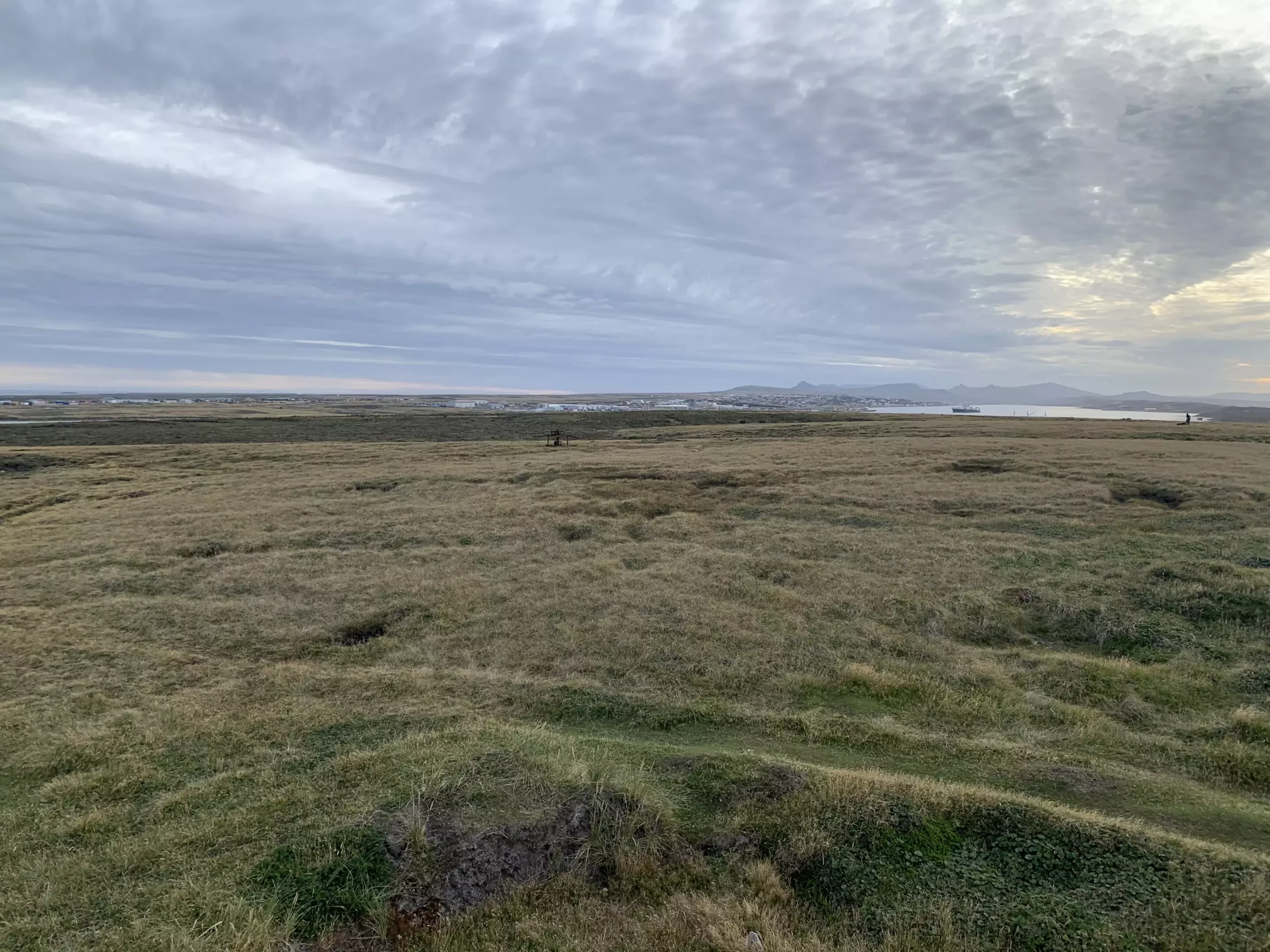The rugged, treeless expanse of the Falkland Islands captivates many with its stark beauty. However, recent findings unveil a startling contrast to the current landscape—a lush and diverse rainforest that flourished up to 30 million years ago. This groundbreaking discovery emerged from research led by Dr. Zoë Thomas and her international team from the University of Southampton, illuminating a past that challenges existing perceptions of this remote South Atlantic archipelago.
Dr. Thomas’s study, co-authored with a group of dedicated scientists, provides compelling evidence that the Falklands were once enveloped in a cool and moist woodland similar to the rainforests found in Tierra del Fuego, at the southern tip of South America. The findings recently published in *Antarctic Science* outline an ancient ecosystem that, under different climatic conditions, teemed with life and biodiversity.
The journey toward this revelation was anything but straightforward. It began with chance conversations in the tight-knit community of Port Stanley, the capital of the Falklands. Local workers unearthed prehistoric remnants, leading to collaborative efforts that invoked the spirit of community-driven research. Dr. Thomas noted, “We were in the Falklands carrying out research for a different project when we heard about intriguing finds from a builder.” This anecdote underscores the importance of community engagement in scientific research, serving as a reminder that valuable insights can often arise unexpectedly when researchers connect with local knowledge.
At Tussac House, where construction was under way, excavators stumbled upon a remarkable find: large, well-preserved tree trunks and branches encased in deep peat layers. The preservation of these relics was so exquisite that they appeared contemporary, contradicting the expectation of finding ancient remains buried for millions of years. This find sparked excitement among the researchers, prompting immediate action to analyze these unexpected treasures.
The research team, collaborating with the South Atlantic Environmental Research Institute (SAERI), undertook the meticulous task of extracting samples from the excavation site. These samples were later transported to the University of New South Wales in Australia, where state-of-the-art technology, including scanning electron microscopy, was employed to analyze the sediment and the ancient wood.
However, radiocarbon dating proved insufficient due to the extreme age of the finds. Instead, researchers turned to pollen analysis, examining spores preserved alongside the tree remains. This innovative approach allowed scientists to propose that the tree trunks and branches dated back between 15 to 30 million years, unraveling a timeline of climatic conditions that could support such diverse life forms.
Understanding the past climate of the Falkland Islands is crucial to grasp the implications of these findings. Millions of years ago, the region was considerably warmer and wetter, conditions that would have nurtured a vibrant rainforest ecosystem. Today, the islands are characterized by cold, windy climates that starkly contrast with their historical climate, leading to the arid grasslands we see now.
The tree species that once thrived in this environment are now extinct. Researchers suggest that these trees may have arrived in the Falklands via prevailing winds from rainforests spanning much of the southern hemisphere. This historical connection between ecosystems broadens our understanding of biogeographical dynamics and how species adapt or perish in response to changing climates.
While this revelation regarding the Falklands’ past is exciting, it also prompts questions about the cause of the rainforest’s decline. Dr. Thomas speculates that a significant climatic shift to cooler and drier conditions could have played a pivotal role in this transformation, leading the region away from its once-thriving ecosystem toward what we find today—peatlands.
The unearthing of ancient tree remains serves not only as a testament to the region’s rich history but also as a stark reminder of environmental shifts over geological timeframes. Dr. Thomas emphasizes, “If we had not engaged with the local community, we may never have recovered these important samples. It’s a lesson in the value of collaboration and local insight.”
The study of the Falkland Islands’ past underscores the interconnectedness of ecology and climate, and how pivotal these elements are for the future of our planet. The compelling narrative of the ancient rainforest invites further scientific inquiry and conservation efforts, encouraging researchers to delve deeper into the mysteries of ancient ecosystems and their connections to contemporary environmental challenges.
As we reflect on these remarkable discoveries, it’s central to recognize the vital role of collaboration—between scientists and local communities, between past and present ecosystems—in fostering a deeper understanding of our natural world. The Falkland Islands, once veiled in mystery, now stand as significant contributors to the narrative of life on Earth, revealing how landscapes and ecosystems are continuously shaped by ever-changing environmental forces.

